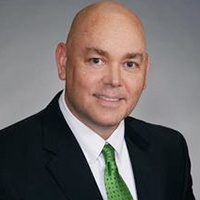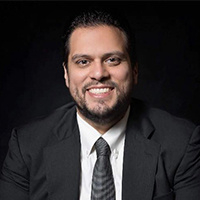 Oberlin Misdemeanor Lawyers, Louisiana
Oberlin Misdemeanor Lawyers, Louisiana
Sponsored Law Firm
-
 x
x

Click For More Info:
-
Babcock Trial Lawyers
10101 Siegen Ln #3-C Baton Rouge, LA 70810» view mapCriminal Defense We Want Your Injury Claim PAID NOW!
At Babcock Trial Lawyers, we work for our clients, maintaining our reputation of excellence as criminal defense & personal injury lawyers in Baton Rouge.
225-500-5000
Not enough matches for Oberlin Misdemeanor lawyer.
Below are all Oberlin Criminal lawyers.
Sponsored Lawyers
1-10 of 33 matches
Criminal, Family Law, Personal Injury
David Green is a graduate of McNeese State University and has a strong background in law enforcement and criminal law. While earning his undergraduate degree, he served as a deputy sheriff with the Calcasieu Parish Sheriff’s Office for nine years, seven of which he worked as a detective handling narcotics, vice and asset forfeiture cases. Green then earned his law degree and worked as an attorney for fifteen years, gaining both criminal defense and prosecutorial experience. He served as an Assistant District Attorney in Harris County, Texas, and then in Calcasieu Parish, where he worked for three years. While there, Green was appointed as the prosecuting attorney for the Combined Anti-Drug Task Force (CAT) in Calcasieu Parish. He is a criminal law instructor at McNeese and also provides training for the McNeese Forensic Chemistry class. He serves as the legal instructor for the CIT (Crisis Intervention Team) program, which is a collaborative educational effort between area law enforcement, healthcare providers and mental health organizations. Green has also been an instructor at the Calcasieu Parish Regional Training Academy where he taught newly recruited police officers and sheriff’s deputies various legal aspects including Louisiana criminal law and procedure, police report writing and search and seizure law. Mr. Green is one of only a few attorneys in the region with a law enforcement background. He is licensed to practice in Louisiana and Texas, and has practiced extensively in both state and federal courts. Green is a member of the Louisiana and Texas State Bar Associations, the Louisiana Criminal Defense Lawyers Association, and the National College for DWI Defense.
(more)Divorce & Family Law, DUI-DWI, Real Estate, Wills & Probate, Adoption
Wesley Bailey is a practicing lawyer in the state of Louisiana specializing in Divorce & Family Law. More about Wes Bailey: Managing Attorney for solo practice. Maintains a general practice based on trial and litigation in multiple fields (criminal, family, and civil law). Practices as a public defender for the 30th Judicial District Public Defenders office. Court-appointed child attorney for children deemed in need of care by the State of Louisiana. Admitted and practice in the Western District Federal Court of Louisiana. Admitted and practice in the Western District Bankruptcy Court of Louisiana. Federal Public Defender for Western District and Magistrate Court for Fort Polk Military base. Leads a competitive trial docket of at least three days per week in litigation matters.
(more)


 Stephen Babcock Baton Rouge, LA
Stephen Babcock Baton Rouge, LA Practice AreasExpertise
Practice AreasExpertise


